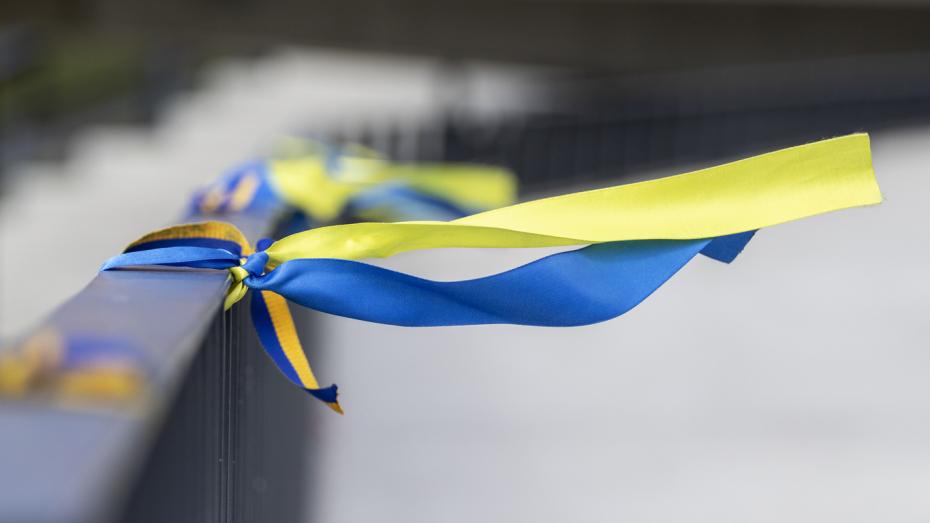Russia’s invasion of Ukraine in 2022 underscored the urgent need to reinforce Ukraine’s legal sovereignty and democratic resilience. In response, the University of Birmingham (UoB) and Ivan Franko National University of Lviv (IFNUL) launched a twinning partnership on Ukraine Constitution Day, framed around “identity, sovereignty and resilience” and funded by UKRI. It comprises a flagship legal dictionary initiative, a Ukrainian Studies summer school, a visiting researcher scheme, and academic development workshops to support capacity-building and Ukraine’s post-war reconstruction.
To develop the English-Ukrainian Legal Dictionary, we partnered with the Constitutional Court of Ukraine (CCU). The dictionary currently defines 1,000 key legal terms to support Ukraine’s evolution as a constitutional democracy, contextualised with examples from both the CCU and the UK Supreme Court. It aims to align Ukraine’s legal system with Western standards and reduce reliance on Russian-influenced terminology – a vital step toward NATO and EU accession.
As the project progressed, challenges, ranging from war-related disruptions to institutional constraints, became learning opportunities. The experience offers insight into building meaningful and resilient partnerships during a crisis. What follows are some of the key lessons we have learned.
Partnerships without a rulebook
There is no manual for how to run an international academic project during a war. Everything we usually take for granted – travel, funding, timelines, even internet access – became uncertain.
We held regular Zoom meetings, often navigating power cuts and air raid sirens. We escalated issues quickly when institutional processes could not keep up. And we leaned heavily on the people who could hold it all together: project managers who combined diplomacy with sheer determination, and academics and judges whose leadership and dedication to the project were exceptional.
But the real lesson? Relationships matter more than processes. The strength of our collaboration came not from perfect planning but from trust, flexibility and shared purpose.
- Spotlight guide: advice from academics and institutions shortlisted in the THE Awards 2025
- Campus talks: why internationalisation must remain a cornerstone of higher education
- Techniques for designing and managing international collaborations
Adapting to the realities of war
Ukraine’s situation held the world’s attention. The scale and visibility of the conflict meant that partners understood the need to adapt, to be flexible and to respond with empathy and urgency. That level of global awareness helped create space for creative solutions and unconventional approaches.
But not all crises dominate international headlines. Political instability, environmental degradation and other less visible threats also demand adaptive, thoughtful engagement. Adaptation should not be reserved for emergencies in the spotlight. It should be a core principle of international collaboration.
One of our first adaptations was to the gendered impact of the war. Ukrainian men of military age are prohibited from leaving the country, which meant that female academics mostly participated in our in-person workshops and visits. This restriction was not just a logistical challenge: it was a moment to rethink what inclusive participation looks like in practice during times of crisis.
We adapted by:
- designing hybrid workshops so male colleagues could join remotely
- holding in-person workshops in Warsaw, where IFNUL colleagues could travel more easily and without visas
- sharing outcomes digitally to ensure broad engagement
- involving male academics in planning and follow-up, even if they could not travel.
The lesson is that inclusion requires intention, especially during times of crisis or constraint.
When delays become opportunities
Delays are usually frustrating. But when UK industrial action slowed our ability to appoint research assistants, we found an unexpected silver lining. We opened the project to students.
Through our Centre for Employability, Professional Legal Education and Research, we recruited 35 law school students to support the dictionary’s development. Their contributions included checking legal terms for accuracy; identifying open-access cases and materials; and providing examples from English law to aid understanding. Students gained real-world experience in international legal collaboration, and the project took on an educational dimension.
Sometimes, the best parts of a project are not in the original plan. Diversifying stakeholder participation from the outset makes plans resilient and adaptable.
The power of showing up
Virtual meetings kept things moving but the in-person visits really deepened our partnership. We hosted 16 IFNUL colleagues and three students in Birmingham during the project. And, on 24 August 2023, our pro vice-chancellor (international) led an academic delegation to Lviv on Ukraine’s Independence Day to participate in a showcase event for our flagship legal dictionary research initiative.
The visit to Ukraine took months of preparation to ensure all eventualities were planned for – insurance, risk assessments, border logistics, bomb shelter protocols – but it was worth every moment. The visit was more than a showcase, it was a powerful gesture of solidarity. Our partners met us at the border, and the experience, effort and commitment from all concerned helped transform colleagues into friends.
Raising the stakes – and the profile
In October 2024, we reached a major milestone: defining the first 1,000 legal terms. We held a high-profile, hybrid event at the University of Birmingham, with more than 60 participants from IFNUL, CCU and the Ukrainian Academy of Legal Sciences.
We also took the dictionary to London, drawing on institutional connections to arrange meetings with UK Supreme Court justices and members of the House of Lords. These were not just photo opportunities, they were moments of connection between legal systems, and a chance to raise the profile of Ukrainian legal reform.
Our Ukrainian partners noticed. The Constitutional Court of Ukraine featured the visit on its website. A sign that the work mattered.
What the partnership taught us – and why it matters now
This project was not just about legal terminology. It was about what it means to stand with a partner amid uncertainty, in practice as well as in principle. We did not have a road map but we had commitment, creativity and a shared belief in the value of democratic resilience.
What we built together – a series of workshops and exchanges, a legal dictionary, a network of scholars – is already making a difference. But the deeper impact lies in the relationships formed, the trust earned and the sense of possibility created in the face of adversity.
How can universities, as they rethink their role in global recovery and justice, respond to something as vast and violent as Russian aggression? This partnership offers a model of concrete, strategic intervention. It supports Ukraine’s legal sovereignty, strengthens democratic infrastructure and demonstrates that academic solidarity is a central element of global resilience.
Erica Arthur is head of global partnerships at Birmingham Global at the University of Birmingham. She specialises in the development of international collaborations and management of key strategic partnerships in Brazil, Europe and the US.
The University of Birmingham was shortlisted for International Collaboration of the Year in the 2025 Times Higher Education Awards. A full list of shortlisted candidates can be found here.
If you would like advice and insight from academics and university staff delivered direct to your inbox each week, sign up for the Campus newsletter.




comment